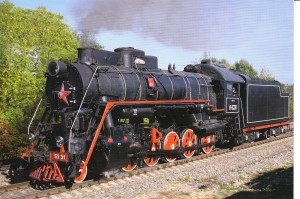From the Gospel according John:
[Jesus said:] “Very truly, I tell you, anyone who hears my word and believes him who sent me has eternal life, and does not come under judgment, but has passed from death to life. Very truly, I tell you, the hour is coming, and is now here, when the dead will hear the voice of the Son of God, and those who hear will live.”
(From the Daily Office Lectionary – John 5:24-25 (NRSV) – August 18, 2014)
 Did Jesus actually say these things? Most contemporary bible scholars would probably answer “No.” The author of John’s Gospel has made Jesus say the things a largely Jewish community of the church in the late 1st Century, a church struggling to cope with its separation from traditional Judaism, believed about Jesus; Jesus is thus both the subject and the interpreter of the message of John’s Gospel. In the 21st Century, we might have preferred the author to have included the interpretation of Jesus in the narrative, not in the words spoken by the character of Jesus portrayed here, but that’s not what we’ve got. What we’ve got is the Jesus remembered by a community with a highly developed Christology telling that community, and us, who Jesus was then and now.
Did Jesus actually say these things? Most contemporary bible scholars would probably answer “No.” The author of John’s Gospel has made Jesus say the things a largely Jewish community of the church in the late 1st Century, a church struggling to cope with its separation from traditional Judaism, believed about Jesus; Jesus is thus both the subject and the interpreter of the message of John’s Gospel. In the 21st Century, we might have preferred the author to have included the interpretation of Jesus in the narrative, not in the words spoken by the character of Jesus portrayed here, but that’s not what we’ve got. What we’ve got is the Jesus remembered by a community with a highly developed Christology telling that community, and us, who Jesus was then and now.
Realizing that helps one realize that this is not Jesus’ predicting the end of the world as we know it. The tenses of verbs in this passage are important. The passing of believers “from death to life” is something that has already happened; it is not something in the future. The coming hour “is now here;” it is a present reality not something for which we are still waiting. This is a spiritual reality, not a prediction about physical reality. Death and life, eternity and judgment, coming hour and voice of the Son of God are all metaphoric terms describing a believer’s present spiritual reality, whether that believer is a 1st Century Jew or a 21st Century Gentile.
Metaphoric language is often difficult to understand, especially when the metaphor is an unfamiliar one. It can be confusingly dreamlike and stubbornly unenlightening. The past few days, recovering from minor surgery on my knee (a partial meniscectomy), I have also been “detoxing” from the general anesthesia used during surgery and the pain management medication prescribed afterward (which I only took for 36 hours). Apparently, vivid dreams are a part of that detoxification process.
One of the recurring images of these dreams is travel on a Russian cross-country train pulled by an antique steam engine! I have never been to Russia, rarely traveled anywhere by train, and never in steam-engine driven conveyance; as metaphors for something, these are highly unfamiliar images. To say the least, this imagery is disconcerting, disorienting, and (as I said) stubbornly unenlightening. I do believe that dreams, especially those we remember, are ways in which our minds work out issues in non-rational ways; I believe they are ways our psyches provide us insights not accessible by the conscious mind. But what are my dreams trying to tell me?
When I read today’s Gospel with Jesus’ interpretive discourse today, I have a similar experience of disorientation; I have almost as little experience with John’s images as I do with Russian steam locomotives. I have no direct experience of death though I have witnessed it; I have no direct experience of divine judgment though I have courtroom experience with its earthly analog; I have no direct experience of the voice of the Son of God though I have heard the voices of parents and children. What is scripture trying to tell me when John’s Jesus uses these metaphoric images?
Fortunately, as Walter Brueggemann has often reminded his readers, metaphors are not univocal, nor do they claim a one-to-one correlation with reality. They speak differently each time we encounter them. Today scripture’s voice maybe as confusing as the dream of a Russian train; tomorrow it may be as clear as a bell; the next day . . . who knows?
What I do know is this, that everyday I am called to listen to the voice of scripture and, in it, hope to hear the voice of the Son of God which promises life. Everyday, I must climb aboard the Russian steam-driven train that is Holy Write and ride where it takes me. Everyday, I must wrestle with scripture as Jacob wrestled with the angel at Peniel and hope that, as he saw God face to face and lived, so may I.
====================
A request to my readers: I’m trying to build the readership of this blog and I’d very much appreciate your help in doing so. If you find something here that is of value, please share it with others. If you are on Facebook, “like” the posts on your page so others can see them. If you are following me on Twitter, please “retweet” the notices of these meditations. If you have a blog of your own, please include mine in your links (a favor I will gladly reciprocate). Many thanks!
====================
Father Funston is the rector of St. Paul’s Episcopal Church, Medina, Ohio.



Leave a Reply